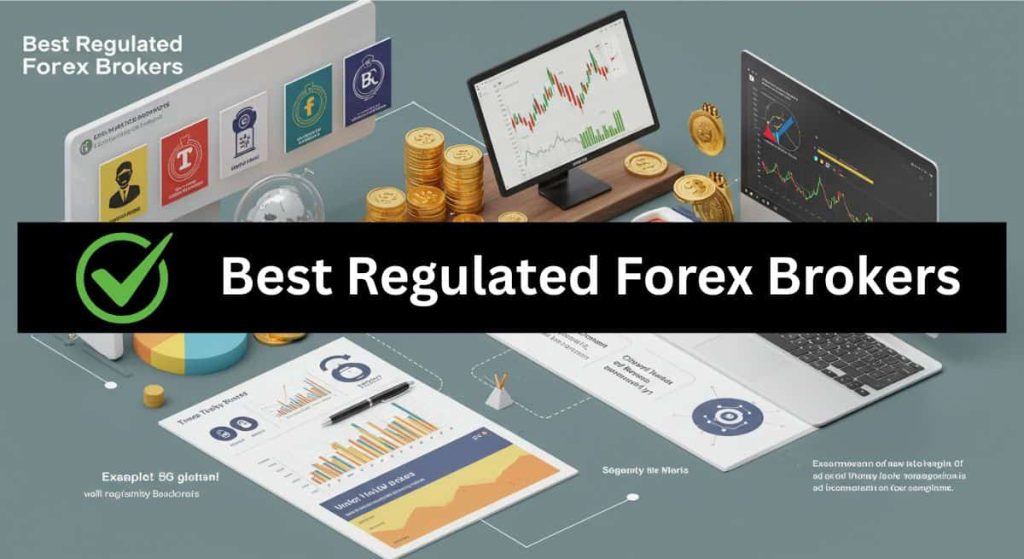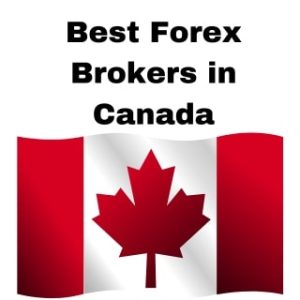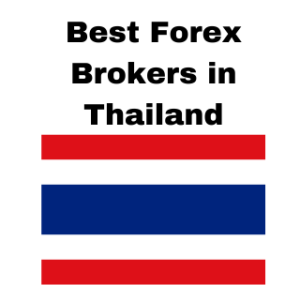Why Regulation is Your Forex Safety Net
Imagine stepping into a bustling global marketplace where trillions of dollars change hands daily, but there’s no sheriff in town.
That’s the forex market without regulation. In 2024 alone, the CFTC reported a staggering 45% rise in forex scams, from “phantom brokers” vanishing overnight to AI-driven schemes fabricating trades.
Regulation isn’t just a buzzword; it’s your armor in this Wild West. Think of it like seatbelts in a car: you hope you’ll never need them, but you’d never drive without them.
What This Guide Will Do For You
We’re here to cut through the noise. By the end of this guide, you’ll:
- Know which brokers treat your money like Fort Knox.
- Spot red flags faster than a seasoned detective.
- Feel confident choosing a platform that won’t leave you stranded.
Let’s turn that anxiety into action.
Why Regulated Brokers Are Non-Negotiable
Your Money Isn’t Their Plaything
Picture this: You deposit $10,000 with a broker, only to discover they’ve used your funds to pay off their office rent. Regulated brokers can’t do this. They’re required to keep client funds in segregated accounts at top-tier banks like Barclays or JPMorgan. If the broker goes bankrupt (looking at you, 2023’s FTX collapse), your money stays untouched.
The “No Surprises” Rule
Regulated brokers must follow strict transparency rules. For example:
- Negative balance protection: Even if the market nosedives, you won’t owe more than your account balance.
- Compensation schemes: The UK’s FSCS covers up to £85,000 if your broker implodes. It’s like insurance for your trades.
Trust Isn’t Built on Empty Promises
Ever seen a broker claim “zero risk” or “guaranteed profits”? Run. Regulated brokers like FOREX.com or OANDA can’t make these claims, they’re legally bound to warn you about risks. They also publish execution quality reports, so you know if your orders are being filled fairly.
How to Spot a Regulated Broker (and Avoid the Wolves in Sheep’s Clothing)
A. The “Gold Standard” Regulators
Not all regulators are created equal. Here’s your cheat sheet:
- FCA (UK): Requires brokers to hold £ 1 M+ in capital and submit to surprise audits.
- ASIC (Australia): Mandates dispute resolution via AFCA, a watchdog that’s helped recover millions for traders.
- CFTC/NFA (US): Caps leverage at 50:1 for major currencies—no reckless 500:1 offers here.
Pro Tip: Use the FCA Register or NFA BASIC to verify licenses. If a broker says they’re “regulated” but won’t share their license number, that’s your cue to exit stage left.
Fees: The Devil’s in the Details
Let’s talk numbers. Say you trade 10 lots of EUR/USD monthly:
| Broker | Spread (Avg.) | Commission | Monthly Cost |
|---|---|---|---|
| OANDA | 0.6 pips | $0 | $60 |
| Unregulated | 0.2 pips | $10/lot | $160 |
That “cheap spread” from an unregulated broker? It’s a trap. Hidden fees will bleed your account dry.
Platforms: Your Trading Command Center
MetaTrader 4/5 is the industry standard, but don’t sleep on proprietary platforms. Interactive Brokers’ Trader Workstation lets you trade forex while monitoring stocks, crypto, and futures—all from one dashboard. Bonus points if your broker offers:
- One-click trading: Critical during volatile news events.
- Custom alerts: Get pinged when EUR/USD hits your target.
Customer Support: Your Lifeline
Imagine it’s 3 AM, and your pending withdrawal hasn’t been processed. A good broker (like TastyFX) answers your live chat in under a minute. A bad one? Cue the crickets. Test their support before depositing, ask a random question like, “Do you offer swap-free accounts?” If they take hours to reply, walk away.
The 2025 Hall of Fame: Brokers That Put Safety First

1. OANDA – The Transparency Titan >>read full review
- Why We Love Them: No sneaky fees. Their spreads are published in real time, and they’ve been FCA-regulated since 2001.
- Cool Feature: Free access to 25+ years of historical data. Perfect for backtesting strategies.
- User Story: “I survived the 2023 GBP flash crash because OANDA’s negative balance protection kicked in.” – Sarah, part-time trader.
2. FOREX.com – The All-Rounder >>read full review
- Standout Perk: Their Advanced Platform offers heatmaps and correlation matrices—tools usually reserved for pros.
- Regulation: Licensed in 6 countries, including the CFTC and CySEC.
- Fun Fact: They once hosted a trading competition with a $1M prize pool. No scams, just skill.
3. TastyFx – The Newbie’s Best Friend >>read full review
- Simplified Trading: One account type, no commission, and a $50 minimum deposit.
- Education Hub: Free weekly webinars on topics like “How to Read a Candlestick.”
4. Interactive Brokers – The Institutional Powerhouse >>read full review
- Low Costs: $0.08 per 1K traded, ideal for scalpers.
- Global Access: Trade forex alongside stocks from 150 markets.
Red Flag Alert: If a broker isn’t on this list and claims to be “better,” triple-check their credentials.
Check out our full list of regulated forex brokers.
How to Vet a Broker Like a Pro
Step 1: The License Check
- Go to NFA BASIC.
- Search the broker’s name. If their status isn’t “Approved,” swipe left.
Step 2: The “About Us” Test
Legit brokers brag about their licenses. If their website’s “Regulation” page is vague or buried, that’s a red flag.
Step 3: The Withdrawal Trial
Deposit $100, then withdraw it immediately. A trustworthy broker processes this in 1–3 days. If they stall or demand more documents, sound the alarms.
Real-Life Hack: Join forums like Forex Peace Army. If 10+ traders complain about withdrawal issues, steer clear.
The Future of Forex Safety
A. AI to the Rescue
Regulators are now using AI to scan for shady trading patterns. In 2024, ASIC’s new algorithm flagged 12 brokers for spoofing orders within weeks.
B. Blockchain Transparency
Brokers like eToro are testing blockchain to track client funds in real time. Imagine a public ledger showing exactly where your money is—no more guesswork.
C. Stricter Leverage Rules
After the 2023 Swiss Franc meltdown, the EU is pushing for a global 20:1 leverage cap. Trade responsibly, folks.
Your Action Plan
- Verify, Don’t Trust: Use regulatory databases, don’t take a broker’s word at face value.
- Start Small: Open a demo account. If the platform feels clunky or slow, it’s not the one.
- Join the Community: Follow Babypips for scam alerts and broker reviews.
Final Thought
Trading forex is thrilling, but it’s not a solo mission. With the right regulated broker, you’re not just a client, you’re a partner. Stay sharp, stay skeptical, and may your pips be plentiful!
Got Questions? Drop them below! We’ll tackle everything from “How do I report a scam broker?” to “What’s the deal with crypto forex?” Let’s build a safer trading world, together. 🛡️💸
For a deep dive into spotting and avoiding scams, explore our comprehensive guide: How to Avoid Forex Broker Scams: The Ultimate Safety Guide (2025)



